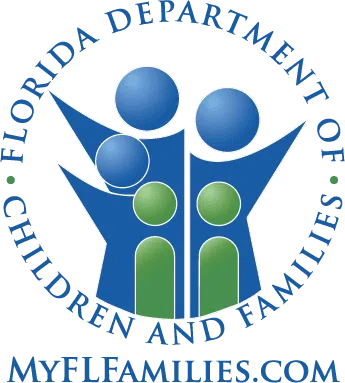
Fentanyl is an immensely potent synthetic opioid. It is usually prescribed for severe pain, but its misuse has recently led to a staggering surge in drug abuse and overdose incidents.
Learn about symptoms of Fentanyl withdrawal, abuse statistics, associated dangers, affected populations, and safe treatments. Keep reading for more!
Prevail Recovery Center is a top-rated drug rehab in Fort Lauderdale. Contact us today to learn more about how our South Florida treatment center can help.
What Are the Symptoms of Fentanyl Withdrawal?
Fentanyl withdrawal can be an arduous ordeal. Its symptoms usually arise 12-48 hours after the last dose and can persist for several weeks.
Common symptoms entail:
- Muscle and bone pain
- Insomnia
- Diarrhea
- Vomiting
- Cold flashes with goosebumps
- Uncontrollable leg movements
- Severe cravings
These symptoms can be physically and emotionally distressing, making it difficult for individuals to quit using Fentanyl without proper support and medical help.
Recent Statistics on Fentanyl Abuse in America (2019-2021)
Over the past few years, the rise in Fentanyl abuse has been alarming.
Shockingly, synthetic opioid-involved overdose deaths have surged by 38.4 percent, primarily because of Fentanyl, according to the Centers for Disease Control and Prevention (CDC).
In the United States alone, over 36,000 overdose deaths were attributed to synthetic opioids in 2019.
Data for 2020 paints an even more worrying picture – over 93,000 drug overdose deaths were reported in the United States, a devastating increase of nearly 30 percent.
This surge was mainly driven by illicitly produced Fentanyl, a synthetic opioid identified as its principal contributor.
What Are the Dangers of Fentanyl Abuse?
Fentanyl effects often appear quickly and can be deadly.
It is a powerful drug, many times more potent than morphine or heroin, so even small amounts are hazardous.
There are several dangers associated with Fentanyl abuse, including:
Overdose
Because of its potency, the risk of overdose is extremely high with Fentanyl abuse. Even a small amount can lead to respiratory depression, coma, and death.
Addiction
Fentanyl can quickly lead to addiction because of its powerful effects on the brain’s reward system. This can cause severe physical and psychological dependence.
Adulterated Drugs
Many individuals who use illicit drugs may be unaware that they contain Fentanyl, increasing the risk of accidental overdose.
Long-Term Health Consequences
Chronic Fentanyl abuse can lead to numerous health problems, including heart, lung, liver, and kidney damage.
What Populations Are Impacted the Most?
While Fentanyl abuse affects people from all walks of life, certain populations are disproportionately impacted, including:
People with Chronic Pain
Individuals prescribed Fentanyl for legitimate medical reasons may develop an addiction because of the drug’s potent effects.
People with a History of Substance Abuse
Those with a history of opioid or other substance abuse are at an increased risk of developing an addiction to Fentanyl.
Young Adults
According researchers, young adults aged 18-25 have the highest rates of prescription opioid misuse, which can increase their risk for Fentanyl abuse.
What Are the Dangers of Withdrawal from Fentanyl?
Attempting to quit Fentanyl cold turkey can be dangerous because of the severity of withdrawal symptoms.
Sometimes, withdrawal can lead to dehydration, electrolyte imbalances, and other complications requiring hospitalization.
Additionally, the intense cravings experienced during withdrawal can increase the risk of relapse and overdose.
Safely Treating Withdrawal and Fentanyl Use
It is crucial for individuals struggling with Fentanyl addiction to seek professional help to ensure a safe and effective recovery.
Some of the treatment options available include:
Medically Supervised
A medical detox program can help manage withdrawal symptoms and reduce the risk of complications.
Medications such as methadone, buprenorphine, and naltrexone may ease withdrawal symptoms and decrease cravings.
Inpatient Rehab
Inpatient treatment programs provide a structured environment with round-the-clock support, allowing individuals to focus on their recovery without distractions.
Outpatient Rehab
Outpatient programs offer more flexibility, allowing individuals to attend therapy sessions while maintaining their daily responsibilities.
Intensive Outpatient Rehab
Intensive outpatient programs provide structure and support while allowing individuals to continue working or attending school.
Partial Hospitalization
Partial hospitalization programs provide intensive therapy while allowing individuals to return home at night.
Behavioral Therapies
Evidence-based therapies, such as cognitive-behavioral therapy (CBT), dialectical behavioral therapy and contingency management, can help individuals develop coping skills to prevent relapse and maintain long-term sobriety.
Support Groups
Peer support groups like Narcotics Anonymous (NA) can provide valuable emotional support and encouragement during recovery.
Recovery Support Programs
Recovery support programs assist individuals in developing skills and strategies for long-term recovery, such as relapse prevention techniques, stress management, healthy lifestyle changes, and social support.
Aftercare Programs
Aftercare programs provide ongoing recovery support services after completing an addiction treatment program successfully.
This may include support groups, sober housing, and other services to help individuals remain in recovery and avoid potential relapse.
Prevail Offers Treatment for Symptoms of Fentanyl Withdrawal in Florida
Prevail is a leading provider of fentanyl withdrawal treatment in Florida.
Our highly trained and experienced staff offer evidence-based personalized care to meet the needs of our clients and help them achieve long-term recovery.
We provide comprehensive outpatient treatments, counseling sessions, relapse prevention strategies, family involvement opportunities, and more.
Contact us today to learn how we can help you or a loved one in your journey toward a healthier and happier life.





I do agree with all the ideas you have introduced on your post. They are very convincing and will definitely work. Still, the posts are very short for newbies. May just you please prolong them a little from subsequent time? Thank you for the post.
Hi, Neat post. There’s an issue together with your web site in internet explorer, may test this텶E still is the marketplace chief and a good component of people will pass over your fantastic writing due to this problem.